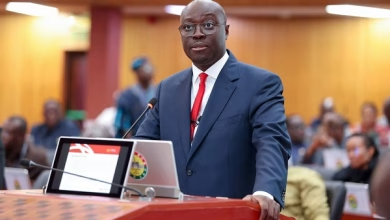Professor Roger Kanton, a renowned Research Scientist at the Savannah Agricultural Research Institute (SARI) of the Council for Scientific and Industrial Research (CSIR), has made a passionate appeal to the government to prioritize the construction of a larger dam at Kubore in the North East region.
The proposed dam would be designed to store the excess water spilled annually from the Bagre Dam in Burkina Faso, which has been causing destruction in the region. Prof. Kanton emphasized that building a dam along the Kubore River would ensure a reliable water supply to many communities in the Northeast and Upper East regions during the dry season.
Prof. Kanton stressed the importance of adopting a proactive approach to water management in the region. He urged stakeholders to consider adopting Israel’s water storage model to boost food production, rather than allowing the yearly destruction caused by the Bagre Dam’s spillage.
Prof. Kanton lamented that while Israel, a country with limited rainfall, exports high-quality vegetables to Europe and other countries, Ghana allows the excess water from the Bagre Dam to cause destruction. He questioned why Ghana does not take advantage of the opportunity to store water for farming.
The professor highlighted the benefits of building a multipurpose dam at Pwalugu and a bigger dam at Kubore, which would store water from the Bagre Dam. He noted that the Upper East region has a proven track record of managing water resources effectively and investing in these projects would be a blessing to the region and the country.
Responding to concerns about the cost of setting up irrigation schemes, Prof. Kanton pointed out that the Ghana Irrigation Development Authority has disclosed that it currently costs about $40,000 to irrigate a hectare of farmland. He argued that this amount is negligible compared to the government’s reckless expenditures.
Prof. Kanton emphasized that the benefits of investing in irrigation schemes far outweigh the costs. He stated that using $40,000 to construct irrigation schemes is “chicken change” compared to the government’s profligate spending.
The professor’s call to action comes at a time when the region is grappling with the challenges of climate change, including droughts and floods. His proposal offers a sustainable solution to these challenges and has the potential to transform the agricultural sector in the region.
By prioritizing the construction of the Kubore dam, the government can ensure a reliable water supply, boost food production, and reduce the risk of destruction caused by the Bagre Dam’s spillage. Prof. Kanton’s proposal is a clarion call to action for stakeholders to work together to achieve a sustainable future for the region.
In conclusion, Prof. Kanton’s appeal to prioritize the construction of the Kubore dam is a timely reminder of the need for proactive water management in the region. His proposal offers a sustainable solution to the challenges facing the agricultural sector and has the potential to transform the region’s economy.
